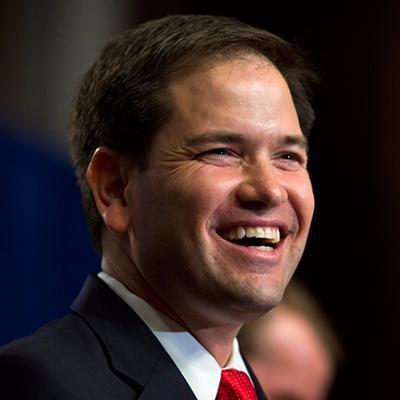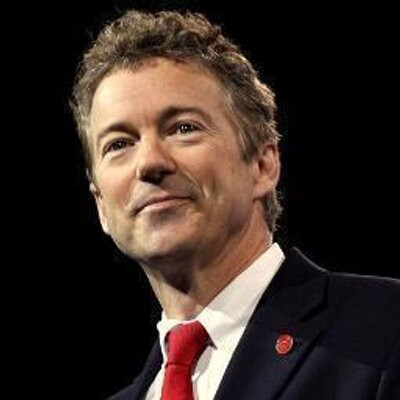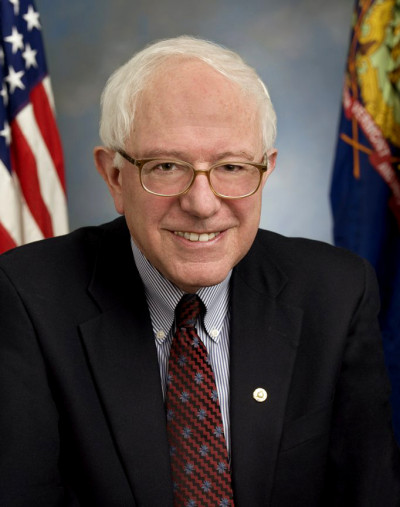Jencunas: Tomato Cans All Lined Up For Hillary
Wednesday, June 03, 2015
There are few guarantees in politics, but here’s one to bet on: Hillary Clinton is going to be the Democratic nominee for President. The only question is if the primary bolsters her national image, by making her look moderate compared to her opponents, or if it damages her by calling attention to her weaknesses. As a Republican, I hope for the latter but fear the former is more likely, especially if Bernie Sanders emerges as her main primary foe.
Hillary’s opponents are a collection of has-beens and never-will-bes. Bernie Sanders, Martin O’Malley, Jim Webb, and Rhode Island’s own Lincoln Chaffee are the political equivalent of “tomato cans” in boxing. That’s the term for the weak opponent’s promoters use to inflate an up-and-coming fighter’s win total, and it applies to Clinton’s hapless foes.
Right now, Vermont socialist Senator Bernie Sanders is the most popular of the Clinton alternatives, a dubious honor that means he’s supported by 15% of Democrats, only 42 points behind Hillary, in the most recent poll. That’s a lot better than the 1% that O’Malley, Webb, and Chaffee are polling at, but it’s a lot worse than how Hillary’s 2008 opponents were polling at this point in the race. In May of 2007, Hillary was 22 points ahead of Barack Obama in nationwide polling. Throughout the 2008 campaign, Hillary never had a double-digit lead in Iowa and Obama was consistently polling around 25%.
GET THE LATEST BREAKING NEWS HERE -- SIGN UP FOR GOLOCAL FREE DAILY EBLASTMore importantly than the early polling, Obama was a credible candidate and Bernie Sanders is not. Obama was a charismatic public speaker whose calm demeanor and inspiring post-racial message could appeal to a broad audience. On the other hand, Bernie’s message of a 90% income tax and a vague “political revolution” against corporations will have little appeal outside of diehard liberals.
Having Bernie as her main primary opponent is the best-case scenario for Hillary Clinton. His positions would make Hillary seem moderate in comparison and his long-winded speaking style makes him unlikely to attack Clinton with the kind of memorable zingers that could stay in voters’ minds.
What’s more, there’s an unquantifiable but undeniable aura of goofiness around Bernie, from his stooped posture to his odd accent. He looks like he’d fit in at a Hollywood casting call for aging hippies, and that’s a good contrast for Hillary on a debate stage. She’d look and sound Presidential, while Bernie reminded the audience of their wacky uncle.
The other three opponents are all more dangerous for Hillary, even though none have a chance of beating her. Webb, Chaffee, and O’Malley can all remind voters of Hillary’s support for the now-unpopular Iraq War while attacking the Clinton Foundation's foreign donations. Those are negatives that could stay with Hillary throughout the election, just as the criticism of Mitt Romney’s time at Bain Capital was first raised by his Republican opponents, then masterfully exploited by Obama’s campaign in the general election.
Of the other three declared Democrats, former Maryland governor Martin O’Malley is clearly the strongest candidate. Jim Webb, one of the other opponents, has a strong résumé as a Vietnam veteran, Secretary of the Navy for President Reagan, and one-term Senator from Virginia. But he also has baggage – he published an article titled “Women Can’t Fight” arguing against allowing women in the military and has spoken nostalgically of the slave-owning Confederate State of America – and is a bad retail politician, showing little interest during his Senate campaign for meeting voters.
Chaffee’s problems are well-known to Rhode Islanders who suffered through his gubernatorial tenure. His arrogant demeanor and cringe-inducing struggles with public speaking will be as unpopular in Iowa as they were in Rhode Island. Retail politics are essential for insurgent candidates in early primary states, so Chaffee and Webb’s disdain for glad-handing and backslapping will make it hard for them to rise above the 1% they’re currently receiving in polls.
O’Malley stands out because of his executive experience. As Governor of Maryland he enacted a laundry list of liberal goals: recognizing same-sex marriage, giving driver’s licenses to illegal immigrants, and raising taxes by $9.5 billion. Beyond those partisan successes, O’Malley was also a leader on apolitical reforms that made government more effective, most notably the StateStat computer system that provides real-time data on government services.
O’Malley’s biggest weakness is Baltimore, the city where he served as mayor before running for governor. Normally his mayoral tenure – where crime rates fell, home prices doubled, and companies flocked to the waterfront – would be something to brag about on the campaign trail. But with Baltimore recently engulfed by rioting, liberals blame O’Malley’s policing strategies for worsening racial tensions.
Even with Baltimore's recent problems, O’Malley is still the strongest of Hillary’s opponents. He has a track record of success, is a generation younger, and can make the case that Hillary is out-of-touch and has outdated ideas.
The unanswered question is whether he wants to be aggressive. Is O’Malley really running for a spot in the Clinton cabinet? If he is, there won’t be anything but the most muted criticism. However, if (to go back to the boxing metaphor) O’Malley is really trying to knockout the champ, it will be bad news for Hillary. She’ll emerge victorious, but O’Malley could bloody her enough where she limps into the general election tarnished by attacks from her own political party.
Is this likely? Not at all. The Democratic voters dissatisfied with Hillary are the most left-wing members of the party. They're more likely to be drawn to Bernie Sanders' unapologetic, unvarnished socialism than to O'Malley's technocratic progressivism. But if O'Malley can exceed expectations, Hillary will be on the defensive far earlier than most observers expect.
Brian Jencunas works as a communications and media consultant. He can be reached at [email protected] and always appreciates reader feedback.
Related Slideshow: 2016 Presidential Candidates by Net Worth
Related Articles
- Jencunas: Gist’s Departure Leaves RI Education at Crossroads
- Jencunas: Residency Requirements - Bad Idea For City Boards
- Jencunas: Juno Response Big Win For RI Elected Officials
- Jencunas: Obama’s State of the Union Victory Lap - and Wish List
- Jencunas: Elorza’s Challenges and His Best Chance at Success
- Jencunas: How Romney Can Win in 2016
- Jencunas: Providence PawSox Stadium - Boon or Bust?
- Jencunas: The Gordon Fox Saga - An Opportunity For Republicans
- Jencunas: Elorza’s First 100 Days - Potholes and Snow
- Jencunas: How Inevitability Hurts Hillary Clinton
- Jencunas - The Providence Streetcar is a Bad Idea
- Jencunas: RI Unions - When You’re Out, You’re Out
- Jencunas: Potholes - An Opportunity for Elorza
- Jencunas: Gore in 2016?
- Jencunas: A Tribute to Professor Jay Goodman
















